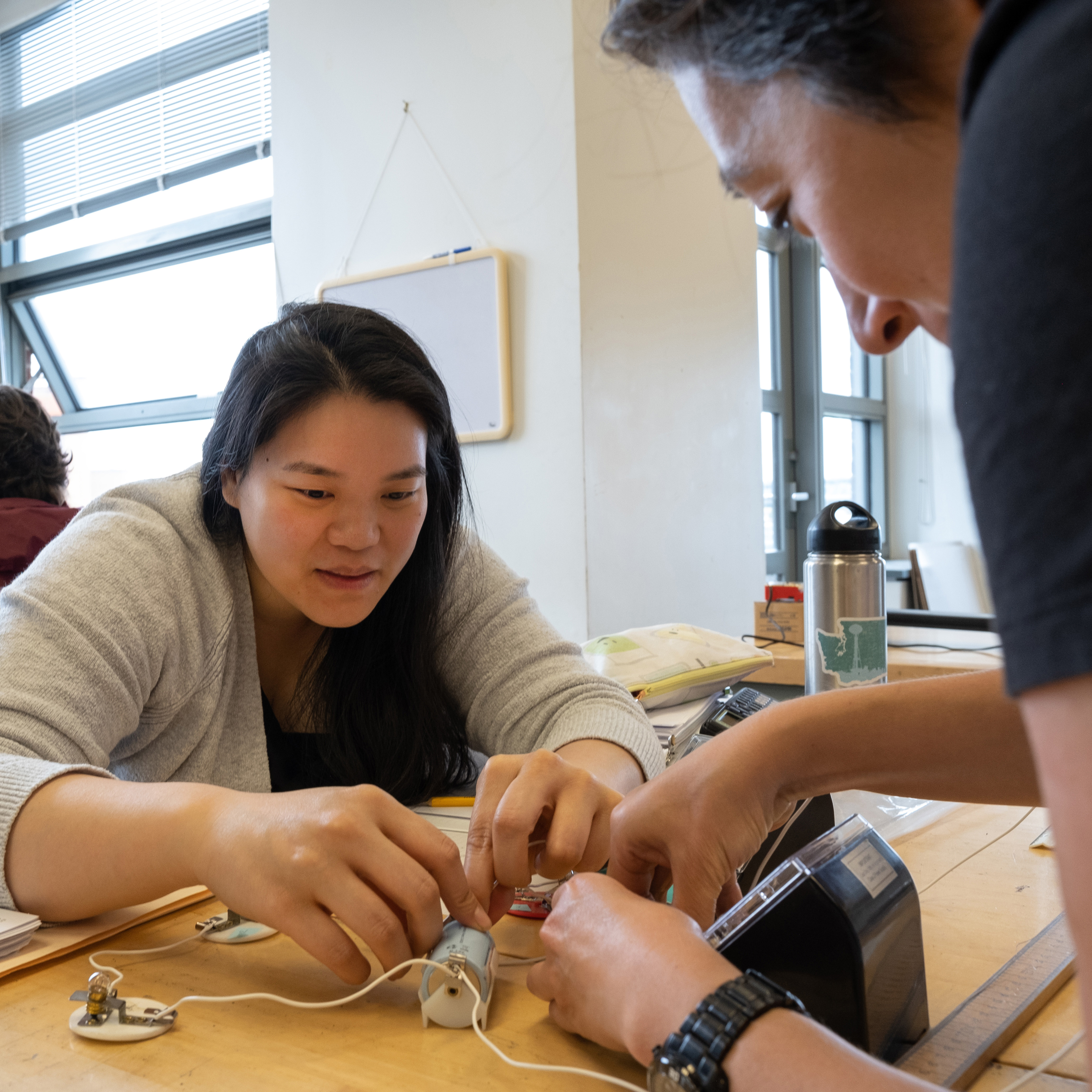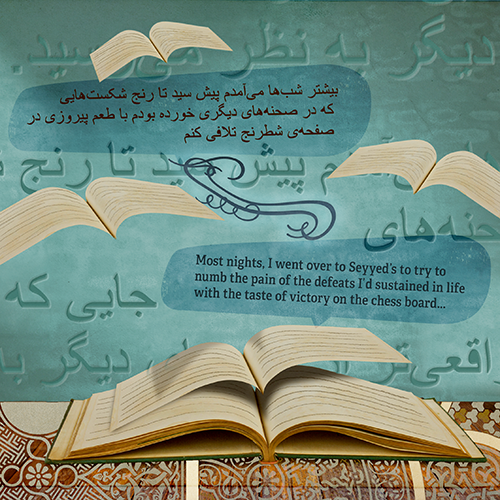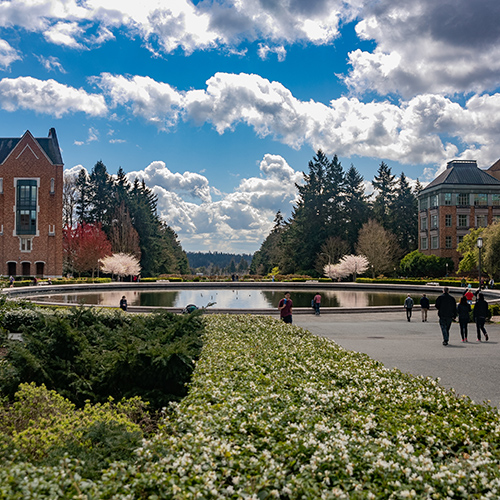
An insider perspective on funding for the betterment of humanity
“I couldn’t ask donors to give if I weren’t also giving,” says Michael Podlin, a former UW fundraiser. Podlin recently included a significant bequest in his estate plans for the Department of Philosophy in the amount of $2 million. This gift dramatically increases the size and flexibility of a modest endowment he established years earlier.

The story of Podlin’s love for the UW began on a crisp November day some 25 years ago. “I was in front of Denny Hall. Bright sun was filtering through the trees, and the beauty of the place struck me,” he says. “I had a bolt of realization that I wanted to work here, that I was going to work here.”
Changing careers, he joined the College of Arts and Sciences at a moment of opportunity and growth. The college hired him as the first director of development for the Social Sciences and he went on to become the assistant dean of advancement. During nearly a decade at the UW, one campaign he helped lead focused on retaining and recruiting brilliant faculty members with endowed professorships and chairs. The push succeeded, and numerous faculty endowments were established.
The donors to the campaign included those working at the UW. “A matching fund encouraged faculty and staff to create endowments,” Podlin explains. “I chose the Department of Philosophy and narrowed it to student support because I understood that to be the greatest need at the time, which the size of my investment could support.”
A gift like this will increase the department’s capacity to meet challenges in the future.
Equipping students to address the challenges of our time
His thoughtful endowment made a difference. “Michael Podlin’s gift is at the core of an enduring tradition of gratitude in the Department of Philosophy,” says UW Divisional Dean of Social Sciences (and previous chair of Philosophy) Andrea Woody. “This is a big place. Students doing great work aren’t always seen. The department’s annual awards ceremony is a chance to recognize and celebrate our best students. Having a small monetary component, funded by Michael’s gift, underscores the significance of our awards. Had he not given another penny, Michael Podlin’s gift would have already made a tremendous impact. And seeing its value influenced my own giving to the University.”
When he gave this money, Podlin understood that the liberal arts often receive fewer resources than some other areas at the University, making the potential for impact even greater. “I strongly support a liberal arts education,” he says. “In my role as a fundraiser, I met liberal arts alums who had a broader view of the world and went on to lead rich lives while having successful careers, becoming leaders in Seattle and beyond.”
Woody sees the value of a liberal arts education from many perspectives, including a personal one. “I was a student who felt especially comfortable in math and science courses,” she says. “Over time, though, my humanities courses ended up being some of the most meaningful experiences that I had.” Today that translates into a career advancing science through the discipline of philosophy.
Although his degree was not in philosophy, Podlin wished it had been. In addition to seeing the immense value of his liberal arts background as he earned an MBA, he came to appreciate philosophy while at the UW. “At its core are critical thinking skills and the ability to communicate,” he says.
“People who have never studied philosophy have a hard time imagining what we do,” says Woody. “Philosophy is something we’re always going to need — people pondering very general conceptual issues that surround almost any enterprise.” She describes it as thinking through why we do what we do, clarifying our values, and understanding what assumptions guide our beliefs and behaviors.
In science, this includes things people might take for granted, like knowing when you have enough evidence to accept a hypothesis or what constitutes a scientific explanation. Asking such foundational questions can inform the mysteries of quantum mechanics or open possibilities in biology. “Questioning assumptions that the world has to be a certain way leads us to new interpretations of data and much-needed discoveries,” says Woody.

Leading with the head and the heart
That understanding led Podlin to revisit the endowment he had established years earlier. After ten years at the UW, Podlin moved on and continued his development career elsewhere. When he retired in 2022 and reviewed his estate plan, he made the change. “If, after taking care of family, you can include a charitable organization as part of your estate planning, it’s an easy way to make a major impact,” he says.
He also removed all restrictions on how the department could spend the funds, a key piece he learned from his fundraising days. “It feels wonderful to give with no strings attached,” he says. “It brings me the greatest joy when I sit with that feeling rather than saying it should support something specific.”
Both Podlin and Woody talk about how difficult it is to predict where the money will be needed. Woody mentions that unrestricted funds helped tremendously during the global pandemic, a completely unforeseen challenge. “Leaving it up to the organization or leadership to decide the best use for the money is always a win-win situation,” Podlin says.
Knowing about it in advance also helps the department prepare. “A gift like this will increase the department’s capacity to meet challenges in the future,” says Woody. “What we need from public universities is constantly evolving; how to educate students, how to support their career and life trajectories, how the university needs to support external communities — none of this is static.”
While he doesn’t know how the money will be used, Podlin does know this, “Faculty impact on students makes untold ripples in the world especially in areas of service and business. I hope graduates bring a component of servant leadership, and I believe that the study of the liberal arts in an area like philosophy especially opens the mind and heart to that.”
In general, Podlin prefers to help others gain the spotlight. Still, he decided to share his story to spur others to think about doing something similar. “The UW holds a very special place in my heart,” he says. “My years there were some of the richest of my career, working with prominent faculty and seeing the impact of their work on the world. I’m thrilled that in an area too often underfunded, they will have a significant endowment to use however they want.”
More Stories

High School Teachers Get Schooled in Physics
High school teachers spent four weeks at the UW Summer Institute in Physics and Physical Science to improve their understanding and teaching of physics.

A Novel Prize for Persian Translation
The Mo Habib Translation Prize is bringing the work of Persian writers — and translators of Persian — to an English-language audience.

Four Dean's Medalists, Working Toward Change
The four new graduates honored as College of Arts & Sciences Dean's Medalists for 2023 are all working to improve our world, in different ways.
